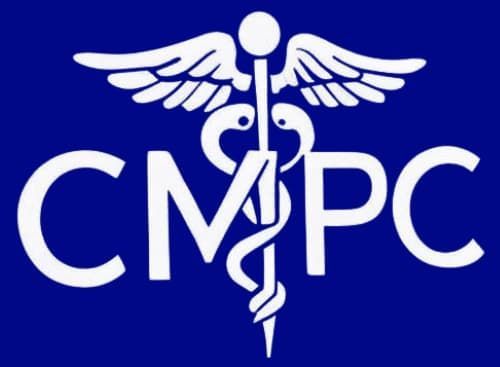
Living with a high BMI (Body Mass Index) brings unique challenges to health and wellness. As medical professionals specializing in weight management, we understand these concerns and will share practical, evidence-based methods for sustainable weight loss.
Why BMI matters
A BMI over 30 classifies as obesity, increasing risks for heart disease, diabetes, and joint problems. While BMI provides a valuable screening tool, it’s just one factor in overall health assessment. Body composition, lifestyle, and medical history are crucial in determining the most appropriate weight loss approach.

4 Evidence-based weight loss methods you can explore
1. Comprehensive Lifestyle Modifications
Personalized Nutrition Planning: Collaborating with registered dietitians is crucial for developing customized nutrition plans that foster sustainable eating habits. These professionals assess individual dietary needs and preferences, crafting plans emphasizing nutrient-dense foods like fruits, vegetables, whole grains, lean proteins, and healthy fats while encouraging portion control. Individuals satisfy their hunger and promote overall health by focusing on foods that provide high nutritional value.
The Mayo Clinic states that a two-week structured diet meal plan can hasten your weight loss, enabling you to safely shed 6 to 10 pounds (2.7 to 4.5 kilograms). This suggests that having a clear and personalized meal strategy can lead to longer-term success in weight management, as it provides individuals with the tools and motivation necessary to make healthier choices consistently.
Tailored Exercise Programs: Incorporating low-impact activities into a fitness routine is vital for improving cardiovascular health, particularly for individuals with joint concerns. Swimming, walking, or cycling effectively enhance heart health and are safe for those with physical limitations. These exercises are gentle on the joints while still providing substantial cardiovascular benefits.
The American College of Sports Medicine (ACSM) recommends that individuals begin with 20-30 minutes of low-impact exercise daily. As fitness levels improve, the goal should gradually increase to 150 minutes of moderate-intensity weekly exercise. This structured approach ensures that individuals can build stamina and strength over time while reducing the risk of injury, thus promoting long-term adherence to physical activity as part of a healthy lifestyle.
2. Medical Weight Management Programs
FDA-Approved Medications: The FDA has approved certain medications for individuals with a Body Mass Index (BMI) of 30 or higher or those with a BMI of 27 or higher who suffer from related health complications. Among these medications, GLP-1 agonists are particularly effective for promoting weight loss. GLP-1, or glucagon-like peptide 1, is a hormone that helps regulate appetite and food intake. When these medications are administered, clinical trials have demonstrated that patients can expect a total body weight reduction of approximately 15-20% within 12 months, especially with lifestyle changes such as diet modifications and increased physical activity.
Professional Monitoring: Regular professional monitoring is essential to ensure any weight loss program’s success. This involves having scheduled check-ups with healthcare providers who can track progress and make necessary adjustments to an individual’s weight loss plan. Studies indicate that programs conducted under professional supervision lead to weight loss outcomes that are notably more successful, by about 30%, when compared to self-directed efforts. This monitoring promotes accountability and helps identify and address potential health issues that may arise during the weight loss journey.
3. Non-Surgical Interventions
Intragastric Balloon Systems: These are temporary weight-loss devices designed to assist individuals in regulating their food intake without requiring surgical procedures. One prominent example is the Allurion balloon, inserted into the stomach using a minimally invasive technique and then inflated. By occupying space in the stomach, the balloon creates a feeling of fullness, which helps to reduce the portion sizes of meals consumed. Clinical studies have demonstrated that patients can achieve a total weight loss of approximately 10-15% of their body weight throughout a 16-week program. This duration allows individuals to adopt healthier eating habits and increase physical activity, ultimately leading to sustainable weight loss.
Endoscopic Sleeve Gastroplasty: This is a cutting-edge, minimally invasive surgical procedure that reduces the stomach’s capacity. It involves using endoscopic suturing techniques to create a tubular structure within the stomach. By significantly decreasing the stomach’s size, this procedure allows patients to feel full after consuming smaller amounts of food. Research indicates that individuals undergoing this procedure can lose 15-20% of their body weight within one year. This method not only aids in weight loss but also helps manage obesity-related health conditions, improving the overall quality of life for many individuals.
4. Bariatric Surgery Options
Surgical interventions are a highly effective option for individuals suffering from obesity, particularly those with a Body Mass Index (BMI) of 40 or higher or a BMI of 35 or higher if they experience obesity-related complications such as diabetes or hypertension. These criteria identify patients who are generally at a higher risk for health issues related to obesity, making them strong candidates for surgical options.
Among the most common surgical procedures are gastric bypass and sleeve gastrectomy. Both techniques are designed to promote significant weight loss by altering the digestive system. Gastric bypass combines restrictive and malabsorptive methods, effectively reducing stomach size while bypassing a portion of the small intestine. On the other hand, sleeve gastrectomy removes a substantial portion of the stomach, leading to reduced food intake and changes in hunger hormones.
As per Cleveland Clinic, research indicates that these procedures can lead to an excess weight loss of approximately 60% to 75% within the first year post-surgery. This considerable weight reduction improves physical appearance and enhances patients’ overall health, reducing the risk of obesity-related conditions.
Moreover, studies show that the long-term success rate of these weight-loss surgeries can exceed 80%, particularly when paired with lifestyle modifications such as improved diet and increased physical activity. This holistic approach to managing obesity underscores the importance of commitment to medical and lifestyle changes, ensuring that patients can maintain their weight loss achievements over time and improve their quality of life.
Supporting Your Journey
Successful weight management requires
- Regular medical supervision ensuring safe progress: This involves continuous monitoring by healthcare professionals who assess the individual’s health status, track progress towards weight loss goals, and make necessary adjustments to the weight loss plan. Regular check-ins can help identify potential health risks, modify the diet or exercise regimen, and provide reassurance and motivation for the individual.
- Behavioural support addressing emotional eating and stress management: The support focuses on identifying triggers for emotional eating and developing coping strategies to manage stress without turning to food. It may include counselling sessions, workshops, or therapy techniques that help individuals recognize their emotional patterns, improve their relationship with food, and adopt healthier habits to handle stress effectively.
- Support group participation improves long-term success rates by 28%: Joining a support group can significantly enhance weight loss by providing a sense of community among individuals with similar goals. These groups often share experiences, offer encouragement, and create accountability, which has been shown to improve adherence to weight loss plans. Research indicates that participants who engage in group support may improve their chances of achieving and maintaining their weight loss goals by up to 28%.
- Realistic goal setting focusing on sustainable 1-2 pound weekly weight loss: Setting achievable and measurable goals is crucial for long-term weight loss success. Individuals can create sustainable dietary and exercise habits without feeling overwhelmed by aiming for a modest weekly target of 1-2 pounds. This approach helps maintain motivation, reduces feelings of failure associated with unrealistic expectations, and promotes a healthier lifestyle that can be continued even after reaching their weight loss targets.
Choose the most suitable weight loss program for you
The best weight loss method varies significantly from person to person and is influenced by several key factors:
- Current Health Status and Medical History: An individual’s overall health, including any existing medical conditions (such as diabetes, heart disease, or hormonal imbalances) and medication use, can significantly affect weight loss strategies. It’s essential to consider how these factors may limit or shape the types of diets or exercise programs that are safe and effective for each person. Consulting with a healthcare provider can ensure that the chosen method aligns with one’s health needs.
- Weight Loss Goals and Timeline: Individuals have different aspirations regarding weight loss. Some may aim for a significant reduction in weight over a short period, while others may prefer a gradual approach. Setting clear, realistic goals helps choose an appropriate method, whether that involves intensive dieting programs or sustainable lifestyle changes aimed at long-term health.
- Lifestyle Preferences and Commitments: Weight loss methods should fit seamlessly into an individual’s lifestyle. Factors like work schedules, family commitments, and personal preferences regarding food and exercise are crucial in determining the best approach. For instance, someone who enjoys cooking might prefer meal prep and home-cooked meals, while another may lean towards convenient, quick options due to time constraints.
- Risk Tolerance for Various Interventions: Different weight loss methods come with varying levels of risk. Some individuals may be open to surgical options like bariatric surgery, while others might feel more comfortable with natural approaches such as dietary changes and exercise. Understanding one’s comfort with different weight loss interventions’ potential risks and side effects is vital for making informed choices.
Bear in mind...
The optimal weight loss method is not one-size-fits-all; it should be tailored to fit each individual’s unique health status, goals, lifestyle, and comfort with risk. Considering these factors, one can develop a personalized, effective weight loss strategy that promotes lasting success and overall well-being.
Every weight loss journey is unique. While these methods prove effective for high BMI individuals, success depends on finding an approach that aligns with personal circumstances and goals. Consult a weight management specialist to discuss these options and develop a personalized plan for your health journey.
Research shows combining multiple approaches often yields the best results. Whether choosing lifestyle modifications, medical interventions, or surgical options, remember that sustainable weight loss takes time and dedication. With proper medical support and commitment to the selected method, achieving a healthier weight is possible.










